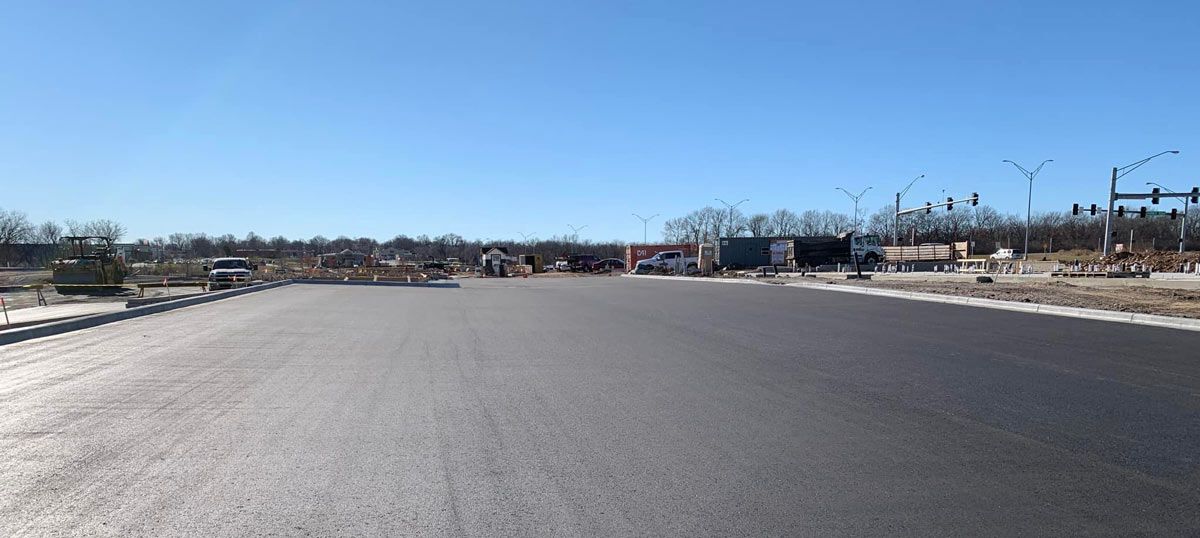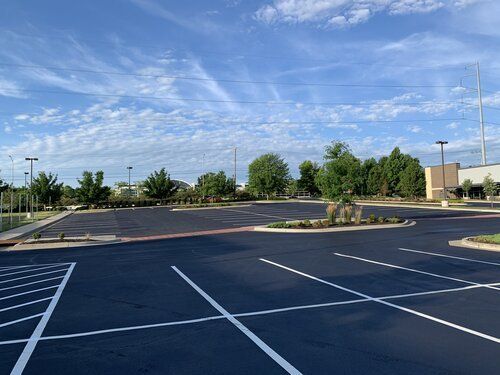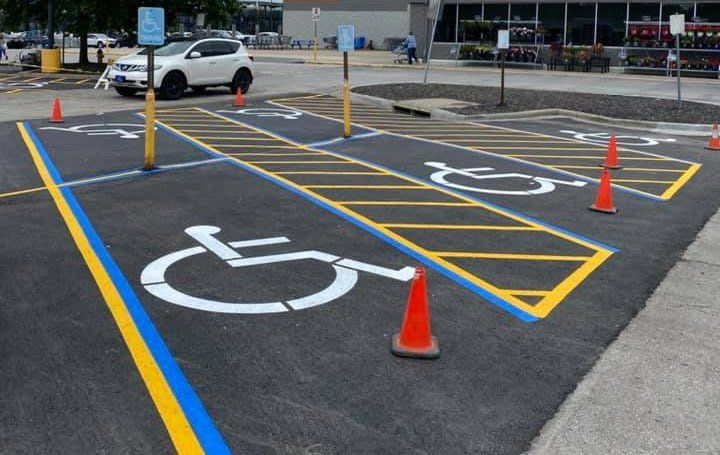Introduction
When it comes to maintaining asphalt surfaces, especially in high-traffic areas, sealcoating plays a crucial role. It's more than just an aesthetic upgrade; it's a protective measure that can significantly extend the lifespan of your asphalt. In this comprehensive article, we will delve into the nuances of sealcoating frequency recommendations for high-traffic areas, exploring everything from the benefits of sealcoating to specific recommendations based on traffic patterns. Whether you're managing a commercial parking lot or overseeing residential paving services, understanding when and how often to sealcoat can save you money in the long run.
Sealcoating Frequency Recommendations for High-Traffic Areas
Sealcoating acts as a barrier against moisture, chemicals, and UV rays that degrade asphalt over time. For high-traffic areas—where vehicles constantly traverse and where wear and tear are accelerated—it's imperative to establish a regular schedule for sealcoating.
Why Is Sealcoating Important?
Protects Against Damage
Sealcoating protects asphalt from cracking and fading caused by weather conditions and heavy usage.

Extends Lifespan

Enhances Appearance
A freshly sealed driveway or parking lot looks sleek and inviting, which is particularly important for business properties.
Cost-Effectiveness
Regular maintenance through sealcoating can prevent larger issues that would require extensive repairs.
Determining Your Sealcoating Schedule
So how often should you sealcoat in high-traffic areas? The answer depends on several factors:
Traffic Levels
Higher traffic increases wear and tear, necessitating more frequent sealcoating.
Weather Conditions
Extreme temperatures and frequent rain can weaken asphalt faster.
Initial Quality of Installation
Professional installation by reputable asphalt companies ensures better initial quality and longevity.
Recommended Frequency Guide
Here’s a quick reference guide for how often to consider sealcoating:
| Traffic Level | Recommended Frequency | |----------------|----------------------------| | Light Traffic | Every 3 years | | Moderate Traffic| Every 2 years | | Heavy Traffic | Annually |
Understanding Asphalt Types: A Brief Overview
Before diving deeper into recommendations tailored specifically for high-traffic areas, it’s beneficial to differentiate between types of asphalt:
Hot Mix Asphalt Paving
Hot mix asphalt is ideal for roadways and commercial applications due to its durability under heavy loads.
Cold Mix Asphalt Paving
More suited for temporary patches or low-traffic areas, cold mix lacks the resilience needed for high-traffic situations.
Choosing the Right Asphalt Paving Contractor
When seeking out asphalt paving contractors for your project, consider these key points:
Experience Matters
Choose contractors with extensive experience in commercial paving services.
Reputation Is Key
Look for reviews online or request references from past clients.
Detailed Estimates
A reliable contractor should provide clear estimates on asphalt paving costs upfront.
Asphalt Driveway Installation: The Basics
For homeowners considering new installations, knowing about various options is asphalt sealcoating essential:
Types of Asphalt Driveways
- Blacktop Driveway Paved vs Unpaved Options Edging Options
Installation Process Overview
Site Preparation Base Layer Installation Surface Layer ApplicationThe Cost of Sealcoating: What to Expect?
Understanding sealcoating costs helps you budget appropriately:
Factors Influencing Sealcoating Costs
Area Size Existing Condition Location (urban vs rural)Average cost typically ranges from $0.10 to $0.20 per square foot depending on these factors.
Parking Lot Striping: An Extension of Maintenance
Once your pavement is sealed, maintaining visibility becomes essential through proper striping:
Importance of Parking Lot Line Striping
Well-marked parking lots improve safety and organization while enhancing visual asphalt paving appeal.
ADA Compliant Parking Lot Striping
Ensure your striping adheres to ADA regulations—non-compliance can lead to fines and reduced accessibility.
The Benefits of Regular Asphalt Maintenance
Investing in regular maintenance can lead to significant long-term savings:
Reduced Repair Costs Improved Safety Enhanced Property ValueFAQs About Sealcoating Frequency Recommendations
FAQ 1: How often should I have my parking lot sealed?
Generally, for heavy traffic areas such as commercial lots, annual sealcoating is recommended.
FAQ 2: Can I DIY my sealcoating?
While DIY is possible with proper preparation and materials, hiring professionals ensures better results due to their expertise in preparing asphalt before application.
FAQ 3: Does weather affect sealcoating?
Yes! Ideally, temperatures should be above 50°F with no rain expected within 24 hours post-application to ensure optimal adhesion and curing.
FAQ 4: How long does it take for sealcoat to dry?
Typically, it takes about 24 hours before you can drive on newly sealed surfaces; however, complete curing may take up to a week depending on conditions.
FAQ 5: What is the difference between coal tar and asphalt emulsion sealers?
Coal tar offers better protection against oil spills but may not be environmentally friendly; whereas asphalt emulsion provides good flexibility but might not last as long under extreme conditions.
FAQ 6: How do I know if I need repair before sealing?
Look for visible cracks or potholes; if they exceed a quarter-inch deep or wide respectively, consider repairs before applying any seal coating product.
Conclusion
In conclusion, understanding the importance of timely and effective maintenance through regular sealcoating cannot be overstated—especially in high-traffic areas where wear happens rapidly! By following appropriate frequency recommendations based on traffic levels while working with qualified professionals like trusted asphalt companies can lead both residential homeowners & commercial property managers toward achieving longer-lasting pavements at an economical cost over time!
Remember that prevention is always better than cure—so whether you're managing a bustling shopping center's parking lot or looking after a quiet residential street's driveway installation project—make sure you prioritize regular inspections & maintenance accordingly!
